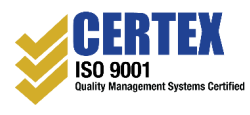Organisations that focus on overall employee experience have 40% lower turnover than the average company
Why measure Employee Experience? Because according to Gallup's State of the Global Workplace 2022 report less than 20% of employees across Australia and NZ are engaged at work.
The rest are just ‘showing up’. According to Davidson’s Cameron Norton, ‘Annual or bi-annual Employee Engagement Surveys are no longer enough.’

The opportunity to unlock performance by improving Employee Experience is enormous. And the numbers tell us that organisations that focus on overall employee experience exhibit up to:
- 2 x average revenue
- 4 x average profit
- 40% lower turnover than the average company
(Jacob Morgan, 2007)
According to Davidson’s Cameron Norton, best practices for measuring Employee Engagement and actioning the insights have changed remarkably in a short period of time. "Annual or bi-annual Employee Engagement Surveys are no longer enough."
What’s required is a robust Employee Listening program. This is when there are regular check-ins, qualitative and quantitative feedback, speedy analysis, and a clear understanding of what support employees require, ensuring a quick "insight to action" cycle across the whole employee lifecycle.
At different stages in the employee lifecycle, different KPIs or measures are used to monitor and improve employee experience and link organisational initiatives and interventions back to business operational metrics, including:
- Recruitment – Time to hire, Offer acceptance rate, Quality of hire, Cost to hire
- On-boarding – Ramp time, New hire engagement, Training effectiveness
- Development – Productivity, 360 feedback, Promotion rates
- Retention – Employee engagement, Attrition rate, Succession results
Employee Listening programs are valuable in gaining meaningful insights into employee priorities, concerns, and suggestions for improvement across the employee lifecycle.
With Davidson’s employee experience implementation and advisory services, underpinned by world leading survey software, we have reduced the time:
- to compile the results from the survey from 4 months to 1 week
- to produce the analysis from the compiled results from 3 months to 1 week
- to produce a set of actionable insights from 6 months to 1 month
Interested in a conversation on how Davidson’s Experience Management team can leverage research, analytics and industry insights to enable business performance through the measure of employee experience?
Find out more here.
Or contact us today.
Share this content







